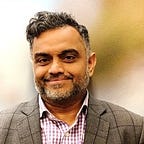Why We Invested: Turaco
Most of the world can’t afford insurance. It’s a product for the rich. Turaco is making insurance possible for the world’s poorest — providing peace of mind and coverage in times of greatest need.
Driving inclusion is key to building resilience, and in this case, ensuring access to the coverage and care that we all need to lead healthy, secure and productive lives. By supporting the growth of innovative micro-insurance models, like Turaco, we can increase resilience to financial shocks and ensure the 100 million people who get pushed into poverty each year because of healthcare payments have a viable alternative.
Market Need
In Africa, 90% of people have no safety net if they get sick, and millions of people fall into poverty every year as a result of having to make out-of-pocket payments to cover health expenses. Losing substantial income to manage an emergency often leaves them worse off than before. Over 100 million people fall into poverty every year as a result of having to make out-of-pocket payments to cover health expenses. Losing what little income they have to manage a medical crisis often leaves them much worse. The micro-insurance model is designed to address the needs of this large unserved market. The opportunity exists, and micro-insurance in Africa has experienced drastic growth in recent years, but the market is still very much in its infancy, with only a 2.6% penetration rate.
The Turaco Solution
Turaco provides simple, quality life and accident insurance coverage for urban and rural poor living on less than $5 a day. At an average price of only $2 per policy, Turaco coverage is affordable and its customer-centric model makes the claims process easy. Turaco also offers on-demand health loans so customers can get care at its network of clinics or hospitals and pay it back over time. Turaco sells its customized insurance products in partnership with businesses, such as ride-hailing apps, paygo energy providers, and fintechs.
The innovation is two-fold. The first part is to recognize the underserved consumer and commit to creating products that fit their life. The second is distribution, developing touch points that integrate into the work, needs, and cashflows of the poor consumer. Cutting corners does not work, it may lead to break-even or profitable at a certain level, but will not scale.
“I founded Turaco to free people from the fear of financial shocks. Insurance is such a simple tool to help people stay out of poverty. Yes, almost none of the people who need it most have it. We are going to change that,” says Co-Founder and CEO Ted Pantone.
Investment Rationale
Lack of adequate access to health and life insurance leaves low-income populations especially vulnerable to financial shocks. In most of the developing world, healthcare is paid for with cash and formal life insurance policies do not exist. Without insurance, millions living at the bottom of the pyramid are at risk of falling even deeper into poverty in the event of an unexpected health crisis or family emergency. Driving financial inclusion is key to building resilience to these shocks and stressors, and micro-insurance offers a safety net and a pathway to peace of mind. By supporting the growth of innovative micro-insurance models, we can reduce the cost of unexpected expenses for the world’s poorest — offering financial coverage during times of greatest need, while simultaneously increasing access to quality services. Our investment in Turaco reflects the universal need for affordable insurance coverage, and the potential of this model to be scaled to meet demand in other countries where Mercy Corps works.
